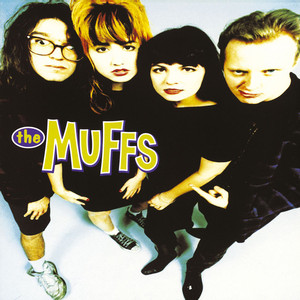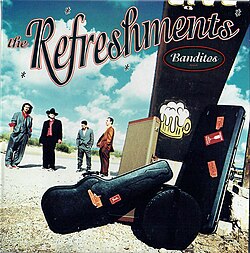 In 1996, the world was introduced to a musical phenomenon that would change pop culture forever. “Wannabe” by the Spice Girls wasn’t just a debut single—it was a declaration of independence, friendship, and unapologetic fun. From the moment the first cheeky lyrics hit, it was clear that this was more than a song; it was a movement. The catchy, rapid-fire verses, playful melodies, and bold attitude made listeners stop in their tracks, smile, and immediately start singing along. It was impossible to ignore, impossible to resist, and impossible not to dissect for cultural significance. By the time “Wannabe” hit number one on charts around the globe, the Spice Girls had not just introduced themselves—they had carved out a new identity for women in pop music, one that combined irreverence, humor, and unstoppable energy.
In 1996, the world was introduced to a musical phenomenon that would change pop culture forever. “Wannabe” by the Spice Girls wasn’t just a debut single—it was a declaration of independence, friendship, and unapologetic fun. From the moment the first cheeky lyrics hit, it was clear that this was more than a song; it was a movement. The catchy, rapid-fire verses, playful melodies, and bold attitude made listeners stop in their tracks, smile, and immediately start singing along. It was impossible to ignore, impossible to resist, and impossible not to dissect for cultural significance. By the time “Wannabe” hit number one on charts around the globe, the Spice Girls had not just introduced themselves—they had carved out a new identity for women in pop music, one that combined irreverence, humor, and unstoppable energy.
The brilliance of “Wannabe” lies in its duality: it’s both carefree and empowering. The lyrics emphasize friendship over romance, a radical notion in a pop world dominated by love songs. It’s cheeky, fun, and exuberant, but it’s also intentional, signaling that the Spice Girls were here to shake up conventions and invite listeners—especially young women—to embrace a bold, self-determined approach to life. Even decades later, the song remains a cultural touchstone, referenced in films, television, and countless parties around the world. But beyond its infectious melody and playful lyrics, “Wannabe” is a case study in how a perfectly timed song can capture the spirit of an era while creating a legacy that refuses to fade.
The Birth of a Pop Phenomenon
The origins of “Wannabe” are as energetic and chaotic as the track itself. Written by the Spice Girls alongside producers Matt Rowe and Richard Stannard, the song was intended to showcase the group’s personalities rather than just their vocal talents. Each Spice Girl—Melanie Brown (Scary), Melanie Chisholm (Sporty), Emma Bunton (Baby), Geri Halliwell (Ginger), and Victoria Beckham (Posh)—was carefully crafted to represent a distinct persona, and “Wannabe” became the perfect vehicle for introducing these characters to the world.
From the very first recording sessions, the energy was palpable. The girls shouted, sang, rapped, and laughed their way through the track, creating an infectious immediacy. It’s that sense of spontaneity that makes the song feel alive even today. Unlike many manufactured pop hits, “Wannabe” exudes personality. It doesn’t just invite the listener into the music—it invites them into the world of the Spice Girls themselves. This personal connection is part of why the song resonated so profoundly across generations.
Lyrics That Redefined Pop Feminism
When “Wannabe” was released in 1996, the mainstream pop landscape was awash with love ballads and traditional romantic themes. The Spice Girls subverted this expectation with lyrics that emphasized friendship over romantic desire. Lines like “If you wanna be my lover, you gotta get with my friends” were playful but revolutionary, insisting that relationships are not just about attraction but about loyalty, fun, and community.
This lyrical twist gave the song a feminist undercurrent that resonated with listeners worldwide. It encouraged young women to value themselves and their friendships, rather than bending to the expectations of potential partners. The song’s advocacy for female camaraderie, combined with its bold, unapologetic delivery, made it an anthem for a generation seeking empowerment through music. The Spice Girls weren’t preaching—they were celebrating—and that made their message all the more powerful.
The Hook That Refused to Quit
Musically, “Wannabe” is deceptively simple. The track is driven by a basic pop-punk rhythm and a minimalist keyboard riff, but what makes it unforgettable is the vocal delivery. The rapid-fire verses create a sense of urgency and fun, while the chorus explodes with sing-along energy. The interplay between the girls’ voices—alternating between harmony, call-and-response, and playful shouting—gives the song a dynamic, kinetic feel that feels larger than life.
The song’s hook, both lyrical and melodic, is relentless. From the “zig-a-zig-ah” chant to the unforgettable “I’ll tell you what I want, what I really really want” line, every element is designed to stick in your head. It’s a textbook example of pop craftsmanship: simple enough to memorize instantly, but with enough personality and flair to keep listeners coming back. The song’s infectious nature helped it dominate radio airplay and MTV rotations, cementing its place in the global pop consciousness.
1996: Timing Meets Cultural Momentum
The year 1996 was ripe for a cultural shift in pop music. The era’s teen-oriented landscape was dominated by boy bands, carefully managed girl groups, and formulaic radio hits. The Spice Girls emerged at the perfect moment, bringing irreverence, personality, and a fresh approach to the genre. “Wannabe” exploded onto the scene as a beacon of energy and fun, offering something that was both rebellious and accessible.
Beyond the music, the Spice Girls’ personalities amplified the song’s impact. Their personas were clearly defined, visually distinct, and immediately recognizable, creating a sense of intimacy and connection for fans. Listeners didn’t just enjoy “Wannabe” as a song—they embraced the Spice Girls as characters, role models, and companions. This multi-dimensional approach transformed a pop single into a global movement almost overnight.
The Music Video: Visualizing the Chaos
The “Wannabe” music video, directed by Johan Camitz, captured the song’s playful energy perfectly. Shot in a colorful hotel setting with scenes of spontaneous dancing, pranks, and chaotic fun, the video visually reinforced the track’s themes of friendship and freedom. It wasn’t polished in a conventional sense—it was messy, lively, and full of personality, just like the song itself.
The video helped solidify the Spice Girls’ image as approachable yet larger-than-life icons. Fans could see themselves in the girls, laughing, dancing, and expressing themselves freely. It wasn’t just about music—it was about attitude, confidence, and presence. The synergy between audio and visual presentation turned “Wannabe” into a cultural event, not merely a chart-topping single.
Global Domination and Legacy
“Wannabe” quickly became a global phenomenon. It topped charts in more than thirty countries, including the UK, the US, and Australia, and it remains one of the best-selling singles of all time by a girl group. Beyond commercial success, it reshaped the landscape of pop music by proving that personality, attitude, and empowerment could be as impactful as vocal talent and production polish.
The song’s influence extended far beyond the charts. It sparked a wave of girl-power-inspired acts, inspired fashion trends, and created a blueprint for pop marketing that integrated character-driven storytelling with music. Its impact is still felt in contemporary pop acts, from K-pop girl groups to American pop stars who incorporate strong branding and empowerment themes into their work.
Why “Wannabe” Still Resonates Today
Decades after its release, “Wannabe” continues to resonate because it captures universal emotions—friendship, desire, ambition, and fun—through an exuberant, unapologetic lens. The song’s energy is timeless, the lyrics are playful but meaningful, and the personalities behind it remain accessible and inspiring. It’s impossible to listen to “Wannabe” and not feel a surge of joy, nostalgia, or empowerment.
Moreover, the song’s advocacy for prioritizing friendships and individuality over societal expectations remains relevant. While the Spice Girls were a product of the ’90s, their message transcends time. It’s a reminder that music can be both entertaining and meaningful, offering listeners not just a beat to dance to but a philosophy to live by.
Cultural Touchstone and Celebratory Anthem
“Wannabe” has cemented itself as more than a hit song—it’s a cultural touchstone. It is played at parties, sporting events, and weddings, often serving as a ritual of celebration, fun, and camaraderie. Its iconic chants are part of the collective consciousness, and the phrase “zig-a-zig-ah” continues to evoke instant recognition and nostalgia.
For fans of the Spice Girls, the song represents the beginning of an era. It introduced them to the girls’ personalities, the spirit of girl power, and a sense of joy and rebellion that felt approachable and inspiring. It’s not just a song—it’s a declaration, a celebration, and a reminder that music can change the way people see themselves and each other.
Conclusion: A Song That Changed Everything
“Wannabe” by the Spice Girls isn’t just a pop single from 1996—it’s a cultural phenomenon that combined infectious music, bold personalities, and a radical celebration of friendship and empowerment. Its catchy hooks, rapid-fire lyrics, and unforgettable energy make it an anthem that transcends generations. The song’s emphasis on loyalty, self-expression, and unapologetic fun helped redefine what it meant to be a girl group and set a template for pop music that continues to resonate.
Decades later, “Wannabe” still feels fresh, vibrant, and exhilarating. It’s a reminder that the right song at the right moment can do more than entertain—it can ignite movements, influence generations, and etch itself into the global cultural memory. For anyone who’s ever felt the thrill of friendship, the excitement of fun, or the joy of unapologetic self-expression, “Wannabe” remains an anthem that refuses to fade.


